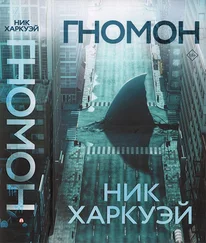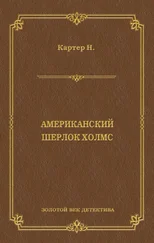Inoue decided that he would drive her to the Xeno Centre. Someone else would drive her car. That was what interns were for. The Sergeant, who hewed to a similar understanding regarding corporals, nodded gravely and opened the door for her.
She climbed into the Land Rover and he was immediately conscious of how crappy it must seem, how messy and battered, and how it stank of fuel. He climbed in and was about to apologise when Inoue amazed him by putting her small feet up on the dashboard, pressing herself into the seatback. ‘VROOOM VROOM!’ she yelled, and when he looked at her in absolute amazement she cracked up, her feet pat-patting on the plastic, and made urgent gestures with her hands: let’s go!
He took the Land Rover up out of Beauville and over the Iron Bridge towards the lowest of the passes which would afford them access to the far side of the island and the Xeno Centre. It was a spectacular drive, and the Sergeant reserved it in his off-duty hours for moments of significance. He had no desire to come here one day, between the old volcano and the plunging gorge of Mancreu’s white Lucretia River, and feel that he had seen it all before. To be jaded by this view would be an admission of something wretched he could not name. Inoue was appropriately silent, but in a companionable way, and they passed the first half hour in mutual appreciation of the world all around. Finally, as the Land Rover ducked down into the treeline and the view was obscured by pines, she glanced over at him.
‘What boy?’
For a moment, the Sergeant did not understand.
‘The Portmaster said I was worse than your boy.’
He grunted. ‘There’s a local kid, he hangs around. We’re friends.’ He was wary of discussing the friendship with an outsider, a female.
‘The one who was at Shola’s, when it happened.’ There was almost no discernible pause as she decided how to say it. He nodded assent, finding that her inquiry had not felt like an intrusion.
‘Smart kid,’ Inoue said, sucking air between her teeth. Not poor kid , he noticed. It was an expression of respect rather than pity, which was exactly right, and his reservations faded abruptly away. She would get it. She had a perfect ear for the way things were done. The way they had to be done.
‘Yes. Very.’
‘Do you have children of your own at home?’
‘Never found anyone. Or no one ever found me, maybe. I’ve moved around. Perhaps the right girl was out there and she kept turning up after I’d gone. Married someone else. I’m thinking…’ Jesus, was he going to say it aloud, to Inoue? When he hadn’t even asked the boy? It seemed so. ‘I’m thinking I might try to take him with me, when it’s time. I can’t offer him… Well, I don’t know what I can offer him. A home. A place. A friend.’ It seemed like very little. Probably there were richer people, couples, who would take a prodigy like the boy, get him into Cambridge or Yale, pay his way. And maybe an American passport was a better thing than a British one. You couldn’t become president if you weren’t US born, of course, but you could be a state governor, like Arnold Schwarzenegger. Or you could found an Internet company and become a billionaire. Or both. Why not? He tumbled down into himself, brooding. ‘I suppose it won’t work out,’ he muttered. ‘But you’ve got to try, haven’t you?’
Inoue, staring straight out into the wilderness, nodded once.
‘Trouble is, I don’t even know if he’s got family. I can’t find out who he is. I mean, I ask him and he sort of waves it off. He doesn’t think he’ll ever leave. And I don’t want to say, you know, “come with me” and have him run for the hills because he’s got a mum on a farm in the shanty. Which he might.’
Still with her eyes towards the horizon, Inoue said: ‘Describe him to me.’
The Sergeant shrugged, both hands on the wheel. ‘You saw him at the funeral.’ But not close up, he realised, and she’d hardly have taken special notice. ‘Dark hair, high cheeks, green and brown eyes. Mid-brown skin. Thin. Twelve years old, maybe more. Very bright – I mean, much more than I can really get to grips with.’
‘Hands?’
‘Long fingers, dirty nails, not too much in the way of calluses.’
‘Long fingers, like crazy long? Or just narrow?’
‘Narrow.’
‘No arachnodactyly. Okay. When he walks, does he look a little like Charlie Chaplin?’
The Sergeant had never thought of it, but there was a particular amble the boy had sometimes, like a sailor’s swagger or, yes, like Charlie Chaplin. ‘Yes. Why?’
‘Hip structure. Keep going. Epicanthic folds?’
‘I don’t know what that is.’
‘This!’ She touched the corner of her eye, the line of the skin.
‘Yes. A little.’
She nodded. ‘When he speaks Moitié he sounds equally happy with French and Arabic words?’
‘It all comes out the same. Not French or Arabic or anything. Just Moitié. When he speaks English—’
She tutted. ‘Everyone here speaks English like the movies.’
‘Yes.’
‘Well. For the record, race is a superstition derived from the clinal distribution of characteristics. But Mancreu is not big and it is not homogeneous and if I had to guess I would say one of his parents was from a mountain family – old island people, that’s why his Moitié sounds that way, so integrated – and the other maybe a more recent arrival. And almost all of the mountain people – even when they move to Beauville – they christen their children at the Chapelle Sainte Roseline by the river, because Sainte Roseline has governance over evil spirits. And mountain people always have a lot of evil spirits.’ She grinned. ‘My grandmother is from the mountains. You would not believe how many ghosts you can get in a very small house.’
He stared at her. She raised her eyebrows briefly: Over to you. Go and make it happen, or don’t. He wondered if she dealt with all problems in the same way, this rapid reduction to a hinge point, and whether she ever found the clarity made things more difficult rather than less.
‘Thank you, Kaiko,’ he said.
‘You’re welcome, Lester,’ she replied.
She spent the next hour pointing out strange mutations. Twice, she stopped him and plucked a small sample of plant life. Nothing on Mancreu, the Sergeant began to realise, was quite the way it should be any more. They passed through an abandoned farm and she stopped him again to look at wheat, then took some of that, too. She wore stiff gloves made out of something space-aged and shiny. ‘Impenetrable to parasites,’ she said sternly. ‘You should get some.’ He sighed – of course, that story would be well known by now – and nodded.
Inoue softened her reproach with a smile, then bent to peer at another growth. He realised that she was talking to herself, proposing and dismissing courses of action, and felt flattered. He was seeing her in her most professional self. It was intimate – this was what made her Inoue – and it was oddly familiar. She saw things which were out of place and gathered them together in her mind to understand what made them so. It was not unlike what he had done in half a dozen bad places, reading the valleys and the weather and the movement of sheep: soothsaying with bullets. He found himself watching her skill with professional appreciation as they made their slow progress across the island. On the fourth and final stop he even started to spot things for her. She smiled again, with approval.
Then they arrived.
The Xenobiology Centre was a cluster of white geodesic domes and extremely engineered circular housing, fast to assemble and durable, but easy to pack up and transport. It bloomed from the rubble and grey sandy soil about three miles from the boundary fence of the old chemical plant, its back against the foothills. The white material was spotless, so that the whole facility looked eerily new and fungal. They had even landscaped it, with small trees and a gravel drive with parking.
Читать дальше
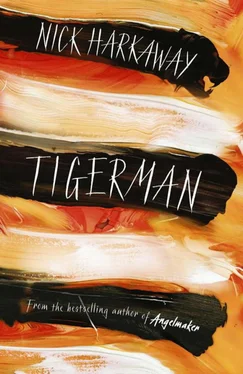
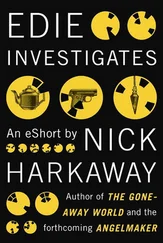
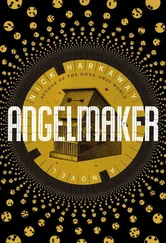
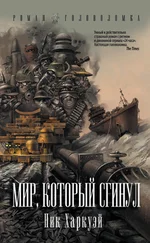


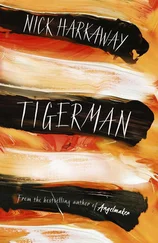
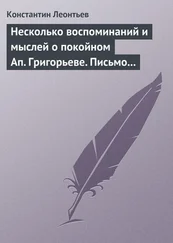
![Ник Харкуэй - Гномон [litres]](/books/400023/nik-harkuej-gnomon-litres-thumb.webp)
